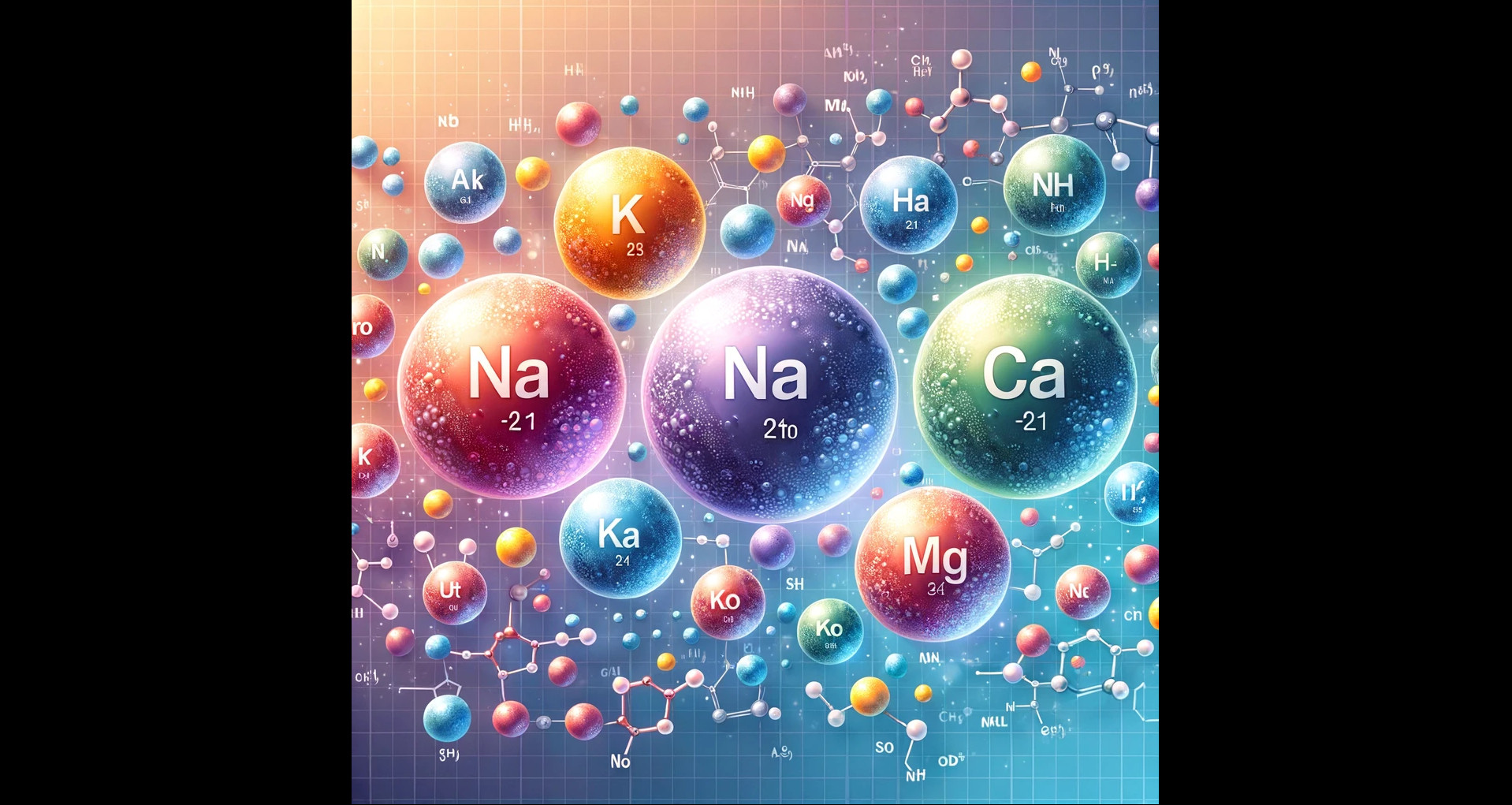What are Electrolytes?
Electrolytes are minerals found in your blood, urine, and other bodily fluids that carry an electric charge. They are crucial for many bodily functions, including maintaining fluid balance, muscle contractions, and regulating pH levels. The primary electrolytes in the human body include sodium, potassium, calcium, magnesium, chloride, phosphate, and bicarbonate.
Sources of Electrolytes
- Sodium:
This essential electrolyte is readily available in table salt (sodium chloride) and is also found in most foods, particularly processed foods. While necessary for bodily functions, excessive intake can lead to high blood pressure. - Potassium:
Bananas, oranges, potatoes, and spinach are excellent sources of potassium, a mineral vital for muscle function and a regular heartbeat. - Calcium:
Dairy products like milk, cheese, and yogurt are rich in calcium, essential for strong bones and teeth. Non-dairy sources include leafy green vegetables and fortified foods. - Magnesium:
Nuts, seeds, whole grains, and green leafy vegetables are good magnesium sources, important for muscle and nerve function. - Chloride:
Found mainly in table salt, chloride works closely with sodium to maintain fluid balance. - Phosphate:
Meat, dairy, and nuts are good phosphate sources, important for energy production. - Bicarbonate:
Produced naturally by the body, bicarbonate helps maintain the body’s acid-base balance.
Benefits of Electrolytes for Humans
- Hydration:
Electrolytes help regulate and maintain the body’s hydration levels, especially during exercise or in hot weather. - Nerve Function:
They are essential for transmitting electrical impulses along nerves, allowing for muscle contractions, including those crucial for heart function. - pH Balance:
Electrolytes help maintain the body’s acid-base balance, which is vital for normal cellular function. - Muscle Function:
Electrolytes like potassium, calcium, and magnesium play critical roles in muscle contractions and relaxation. - Blood Pressure Regulation:
Sodium and potassium work together to regulate blood pressure.
Measurement
Electrolytes, carry an electric charge which is essential for various bodily functions. The charge of electrolytes is typically measured in terms of ions, which are atoms or molecules that have gained or lost one or more electrons.
- Charge Measurement:
The charge of an ion is measured in coulombs (C), but in the context of electrolytes in the body, it’s more common to refer to them as positively or negatively charged ions. For example, sodium (Na+) and potassium (K+) are positively charged ions (cations), while chloride (Cl-) and bicarbonate (HCO3-) are negatively charged ions (anions). - Electrolyte Concentration:
In the human body, the concentration of electrolytes is measured in milliequivalents per litre (mEq/L) or milligrams per decilitre (mg/dL). These measurements indicate how many milligrams of the electrolyte are found in a litre of blood. - Blood tests
As mentioned the electrical charge and concentration of electrolytes in the body can be measured. Blood tests are commonly used to determine the levels of electrolytes, especially in medical settings. For example, a basic metabolic panel (BMP) or comprehensive metabolic panel (CMP) are blood tests that measure the levels of various electrolytes in the blood, along with other important markers. These tests can help diagnose electrolyte imbalances and guide treatment decisions. - Importance of Balance:
While the electrical charge of individual electrolytes is important, it’s the balance between different types of electrolytes that’s crucial for bodily functions. For instance, the balance between sodium and potassium is essential for heart function, and the balance between calcium and magnesium is important for muscle function.
Conclusion
Electrolytes are vital for numerous bodily functions, and maintaining a balanced electrolyte level is crucial for overall health. A balanced diet typically provides all the necessary electrolytes, but in certain situations like intense physical activity, illness, or hot weather, supplementation may be necessary. However, it’s important to approach electrolyte supplementation with caution, as imbalances can lead to health issues.
